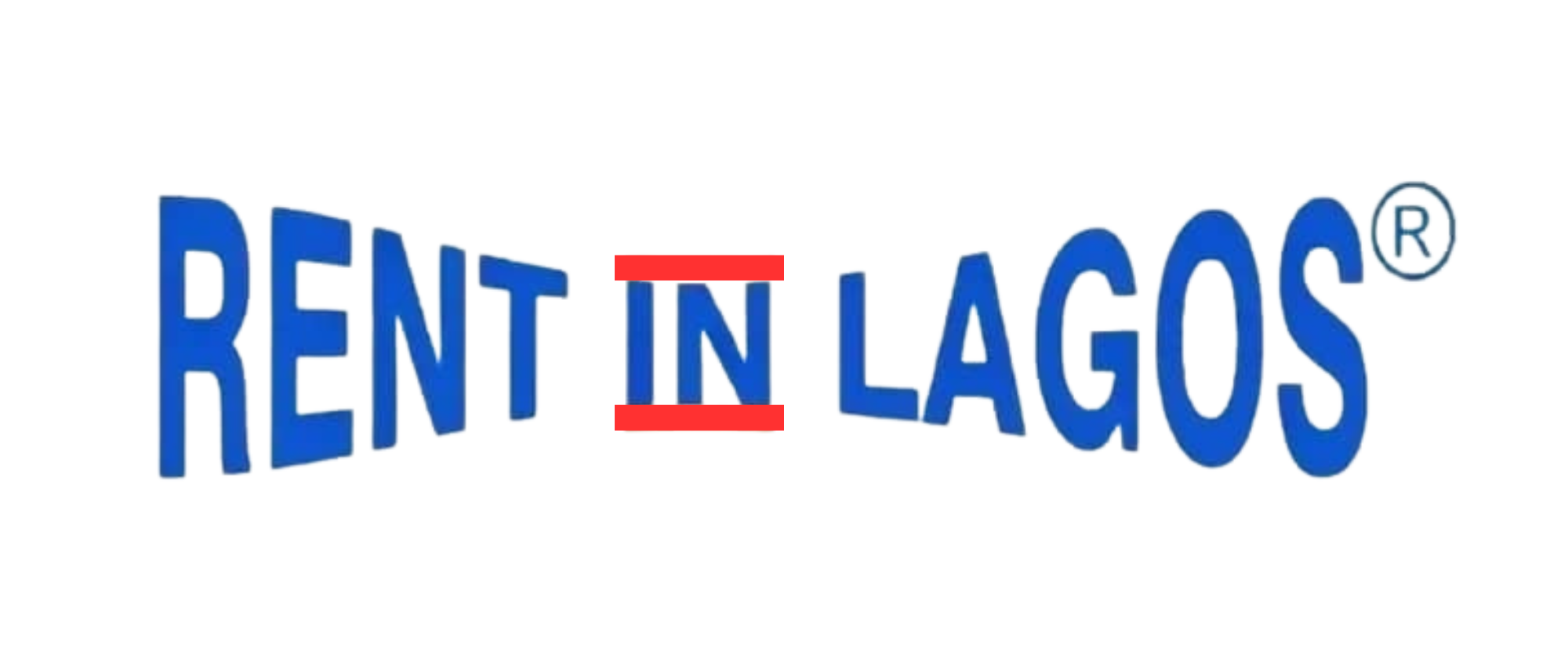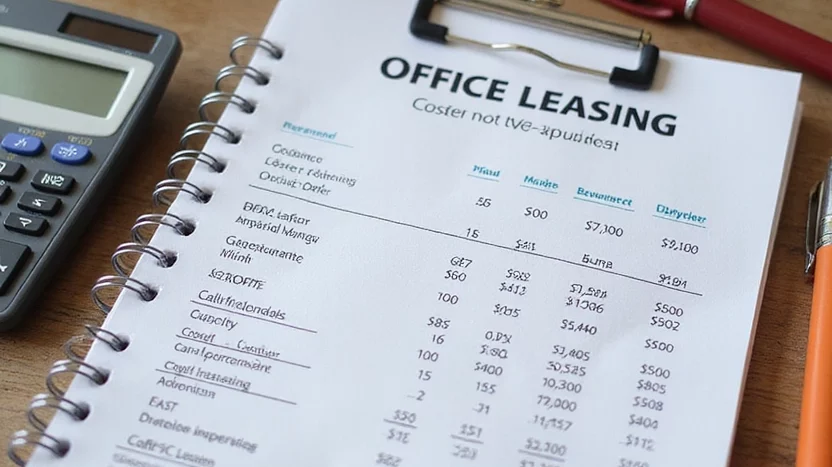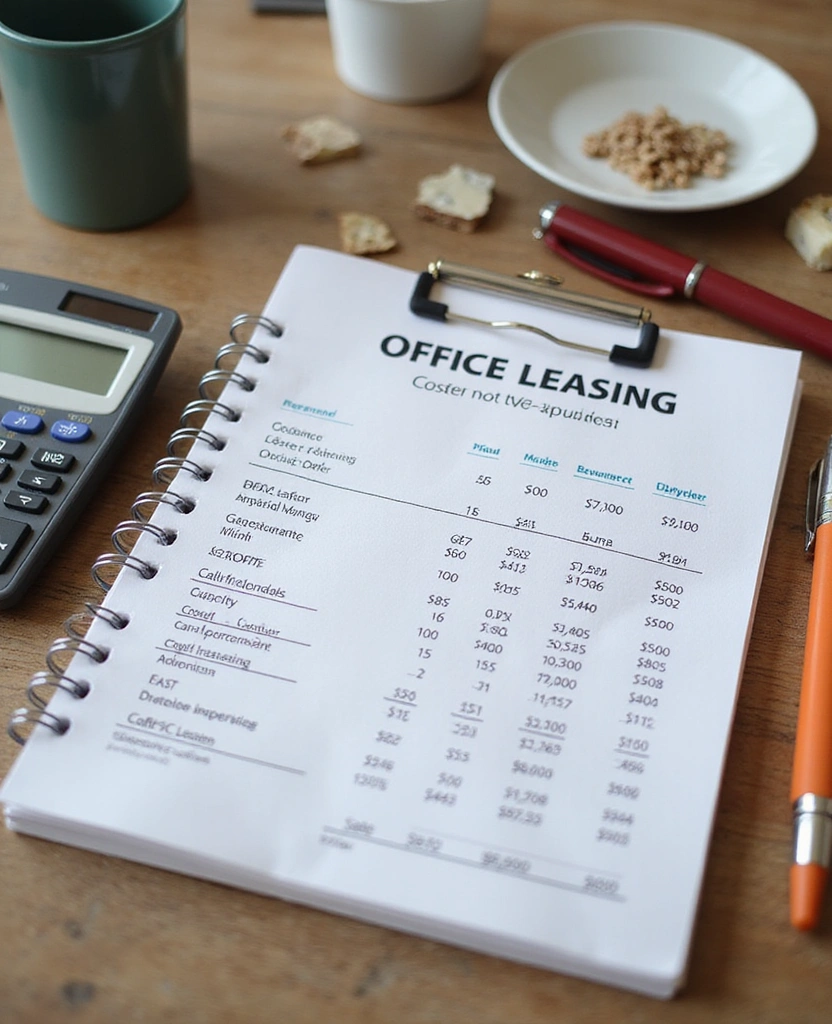The Ultimate Guide to Startup Office Leasing: 13 Tips for Growth and Scalability
Can the right office space really make a difference in a startup’s success? For many entrepreneurs, the answer is yes. According to Business News Daily, establishing a brand and growing requires careful planning, including securing the ideal office environment.
A well-chosen office can foster a productive work environment and help attract top talent, setting the stage for long-term success. As startups navigate the complex process of commercial real estate leasing, they must balance immediate needs with future growth plans.
Key Takeaways
- Understand the importance of strategic office leasing for startups.
- Learn how to balance immediate office needs with future growth plans.
- Discover tips for negotiating a favorable office lease.
- Explore the role of office environment in attracting top talent.
- Identify key factors in choosing the right office space for scalability.
Understanding the Nigerian Commercial Real Estate Landscape
Nigeria’s commercial real estate landscape is diverse, with varying trends across different regions. The market is primarily driven by the needs of businesses in major cities like Lagos, Abuja, and Port Harcourt.
Current Market Trends in Nigerian Office Space
The Nigerian office space market is experiencing a significant shift, influenced by factors such as technological advancements and changing workforce dynamics. According to recent data, Lagos and Abuja are the primary hubs for commercial real estate, with a growing demand for modern, well-equipped office spaces.
Key trends shaping the Nigerian office space market include:
- Increasing demand for flexible workspaces
- Growing importance of amenities and infrastructure
- Rise of Grade A office buildings in major cities
- Expanding presence of international companies
According to Obiesie Michael, commercial real estate expert, “The Nigerian commercial property market is becoming increasingly sophisticated, with a growing focus on sustainability and technology integration.”
“The future of office space in Nigeria lies in creating environments that foster productivity, collaboration, and employee well-being.”
Regional Differences: Lagos vs. Abuja vs. Port Harcourt
The commercial real estate market in Nigeria varies significantly across regions. Lagos, being the commercial hub, has a more developed office space market compared to Abuja, the administrative capital. Port Harcourt, known for its oil and gas industry, has its unique demands and trends.
| City | Average Rent (₦/sqm) | Key Industries | Office Space Demand |
|---|---|---|---|
| Lagos | 8,000 – 50,000 | Finance, Technology, Media | High |
| Abuja | 7,000 – 22,000 | Government, Diplomacy, Consulting | Moderate |
| Port Harcourt | 6,000 – 12,000 | Oil & Gas, Energy, Manufacturing | Low to Moderate |
Understanding these regional differences is crucial for startups looking to lease office space in Nigeria. By analyzing the unique characteristics of each market, businesses can make informed decisions that support their growth and scalability.
Assessing Your Startup’s Office Space Needs
Assessing your startup’s office space needs involves careful consideration of several key factors to ensure that your leased space supports your business growth and scalability.
When evaluating your office space requirements, it’s crucial to strike a balance between current needs and future growth projections. This assessment will help you make informed decisions when leasing office space in Nigeria.
Tip1: Calculate Space Requirements Based on Team Size and Growth Projections
Calculating the right amount of office space requires considering your current team size and anticipated growth. A general rule of thumb is to allocate between 10-25 square metres per employee, depending on your business needs and workstyle.
For instance, a startup with a current team of 20 employees might require around 300-500 square metres. However, if you anticipate doubling your team within the next two years, you should factor this growth into your space calculations.
| Team Size | Recommended Space (sqm) |
|---|---|
| 10 employees | 150-250 |
| 20 employees | 300-500 |
| 50 employees | 750-1250 |
Tip2: Identify Must-Have Amenities and Infrastructure
Beyond space, it’s essential to identify the amenities and infrastructure critical to your startup’s operations. These may include high-speed internet, meeting rooms, kitchen facilities, and secure access.
“The right office amenities can significantly boost productivity and employee satisfaction. Consider what’s essential for your team when evaluating potential office spaces.”
When assessing potential office spaces, create a checklist of your must-have amenities and infrastructure. This will help you quickly identify spaces that meet your needs and those that require further negotiation or compromise.
By carefully calculating your space requirements and identifying essential amenities, you can effectively assess your startup’s office space needs and find a leased space that supports your business goals.
Budgeting for Office Space in Nigeria
Office space budgeting for Nigerian startups involves more than just rent; it’s about understanding total occupancy costs. When leasing office space, startups must consider various expenses beyond the basic rent to create a realistic budget.
Understanding Total Occupancy Costs Beyond Rent
Total occupancy costs encompass a range of expenses including utilities, service charge, maintenance, insurance, and property taxes. According to recent data, startups need to factor in these costs when budgeting for office space (Maxiom Tech, 2024). Utilities alone can add a significant amount to the overall expenditure, with costs varying based on usage and the efficiency of the building.
Tip3: Creating a Realistic Office Space Budget
To create a realistic office space budget, every Nigerian startups should:
- Calculate the total occupancy costs, including all associated expenses
- Prioritize cost-saving measures such as energy-efficient utilities
- Negotiate lease terms that offer flexibility for future growth
By understanding and managing total occupancy costs, startups can make informed decisions about their office space, ensuring it supports their growth without straining their finances.
Location Strategies for Startups In Nigeria
The location of a startup’s office in Nigeria plays a significant role in determining its success, influencing factors such as prestige, accessibility, and overall costs. A well-chosen location can enhance a startup’s visibility, facilitate talent acquisition, and improve client relationships, while a poorly chosen one can lead to increased operational costs and reduced competitiveness.
Tip4: Balancing Prestige, Accessibility, and Cost
Nigerian startups must balance the prestige associated with a high-profile address, the accessibility required for talent and clients, and the cost constraints of their budget. For instance, locating in a prestigious area like Lagos’s Victoria Island or Abuja’s Central Business District can enhance a startup’s image but at a higher cost. Conversely, areas with lower rent may offer savings but could lack the desired prestige or accessibility.
Proximity to Talent, Clients, and Business Services
Proximity to talent pools, client bases, and business services is another critical factor in location strategy. Startups in technology or innovation hubs may benefit from being near universities or tech parks, while those in service industries may prioritize locations close to major client concentrations. Additionally, access to business services such as financial institutions, logistics providers, and professional services can enhance operational efficiency.
For example, a tech startup might locate near the African Leadership University or Yaba Tech Valley in Lagos to tap into emerging talent, while a financial services firm might choose a location near major banks or financial institutions to facilitate client interactions and service delivery.
- Evaluate the trade-offs between different locations based on your startup’s specific needs.
- Consider the long-term implications of your location choice on growth and scalability.
- Assess the availability of necessary infrastructure and services in potential locations.
By carefully weighing these factors, Nigerian startups can select a location that supports their growth, enhances their competitiveness, and aligns with their strategic objectives.
The Complete Guide to Startup Office Leasing Process
The process of leasing office space is a critical step for startups in Nigeria, involving various legal, financial, and logistical considerations. Understanding the nuances of this process can significantly impact a startup’s ability to secure a suitable workspace that meets its needs while optimizing costs.
Tip5: Understanding Lease Types and Terms in Nigeria
In Nigeria, startups can encounter various lease types, including fixed-term leases and periodic tenancies. Fixed-term leases offer stability, with terms typically ranging from one to three years, while periodic tenancies provide flexibility, automatically renewing until terminated by either party.
Understanding the terms of a lease is crucial. Key provisions include rent, duration, renewal options, and termination clauses. Startups should carefully review these elements to ensure alignment with their business projections and growth plans.
Documentation and Legal Requirements for Nigerian Businesses
When leasing office space in Nigeria, certain documentation and legal requirements must be fulfilled. These include a valid lease agreement, which outlines the terms and conditions of the tenancy. Other necessary documents may include proof of identity, tax clearance certificates, and evidence of insurance.
Nigerian law mandates that certain formalities be observed, such as the registration of the lease with the appropriate authorities if the lease term exceeds a certain threshold. Compliance with these regulations is essential to avoid potential disputes or penalties.
To navigate these complexities, startups are advised to engage legal professionals familiar with Nigerian property law. This ensures that lease agreements are properly drafted and executed, safeguarding the startup’s interests throughout the tenancy.
Negotiation Strategies for Favorable Lease Terms
Mastering lease negotiation is crucial for Nigerian startups to secure optimal office space that supports their growth and scalability. As highlighted by Arianna Huffington (2024), market knowledge and flexibility are key to successful lease negotiations. Understanding these elements can empower startups to navigate the complex commercial real estate landscape effectively.
Tip6: Leveraging Market Knowledge in Negotiations
Having a deep understanding of the Nigerian commercial real estate market can significantly enhance a startup’s negotiation position. This involves staying informed about current market trends, vacancy rates, and average lease terms in key cities like Lagos and Abuja. By leveraging this knowledge, startups can identify opportunities to negotiate more favorable lease terms, such as better rental rates or more flexible lease durations.
Market Knowledge Benefits:
- Identify favorable rental rates
- Negotiate flexible lease terms
- Make informed decisions on location
Tip7: Securing Flexibility for Future Growth
Startups often experience rapid growth, making it essential to secure lease terms that accommodate future expansion. Negotiating flexibility into the lease can prevent the need for costly and disruptive relocations. This might include options for lease extensions, expansion clauses, or flexible break clauses.
| Flexibility Clause | Description | Benefit |
|---|---|---|
| Lease Extension | Option to extend lease beyond initial term | Continuity and stability |
| Expansion Clause | Provision to expand leased space | Accommodates growth |
| Break Clause | Option to terminate lease early | Reduces commitment risk |
Working with Brokers and Agents in Nigerian Real Estate
Engaging with experienced brokers or agents can provide valuable insights and negotiation support for startups navigating the Nigerian commercial real estate market. These professionals can offer market intelligence, facilitate lease negotiations, and help identify suitable properties that meet the startup’s needs.
“The right broker can make all the difference in securing a favorable lease.”
When selecting a broker, startups should look for professionals with a proven track record in the Nigerian market, particularly in their desired location. This can help ensure that the startup benefits from the broker’s local knowledge and negotiation expertise.
Alternative Office Solutions for Nigerian Startups
Alternative office solutions are gaining traction among Nigerian startups, offering a respite from the constraints of traditional leasing arrangements. As the startup ecosystem continues to evolve, the need for flexibility, scalability, and cost-effectiveness in office spaces becomes paramount.
Evaluating Coworking Spaces in Major Nigerian Cities
Coworking spaces have emerged as a viable alternative to traditional office leasing, providing Nigerian startups with the flexibility to scale up or down as needed. When evaluating coworking spaces, consider factors such as location, amenities, community, and cost.
- Location: Proximity to key business districts, public transport, and amenities.
- Amenities: Availability of high-speed internet, meeting rooms, and recreational facilities.
- Community: Opportunities for networking and collaboration with other businesses.
- Cost: Competitive pricing models that align with your startup’s budget.
According to a report, coworking spaces in major Nigerian cities like Lagos and Abuja are becoming increasingly popular, with many offering tailored solutions for startups.
“The rise of coworking spaces in Nigeria reflects a broader shift towards more flexible and collaborative work environments.”
| City | Number of Coworking Spaces | Average Cost per Desk |
|---|---|---|
| Lagos | 20 | ₦150,000 |
| Abuja | 15 | ₦120,000 |
Virtual Offices and Hybrid Work Models
Virtual offices and hybrid work models represent another alternative for Nigerian startups, allowing for a more flexible approach to work. These models can help reduce overhead costs associated with traditional office spaces while maintaining a professional business presence.
When considering virtual offices or hybrid models, startups should evaluate their specific needs, including the requirement for physical meeting spaces, mail handling services, and brand representation.
The flexibility offered by virtual offices can be particularly beneficial for startups with remote teams or those experiencing rapid growth.
Designing Your Office for Productivity and Culture
Effective office design is not just about aesthetics; it’s about creating a space that boosts productivity and embodies the company’s culture. As Mr. Bolaji, a proponent of business growth, emphasizes, a well-designed office can significantly enhance a company’s productivity and cultural identity.
Tip10: Space Planning for Collaboration and Focus
Space planning is a critical aspect of office design. It involves creating a layout that fosters collaboration among team members while also providing areas for focused work. Open spaces can encourage teamwork and creativity, while private areas can help reduce distractions and improve productivity.
When planning your office space, consider the workflow and movement of your team. Ensure that the layout facilitates easy communication and minimizes unnecessary movement. For Nigerian startups, this might mean creating flexible workspaces that can adapt to changing team needs.
Tip11: Cost-Effective Office Design and Furnishing in Nigeria
Designing and furnishing an office on a budget requires creativity and resourcefulness. Nigerian startups can adopt several cost-effective strategies, such as repurposing existing furniture, shopping for second-hand office equipment, and opting for local, affordable materials for decor and finishes.
To further reduce costs, consider the following:
- Use natural light to minimize the need for artificial lighting.
- Select multi-functional furniture that serves more than one purpose.
- Incorporate plants to enhance the aesthetic and air quality.
| Cost-Effective Design Elements | Benefits |
|---|---|
| Repurposed Furniture | Reduces waste and saves on new furniture costs |
| Local Materials for Décor | Affordable and culturally relevant |
| Multi-functional Furniture | Maximizes space utility |
By implementing these strategies, Nigerian startups can create a productive and culturally reflective office environment without incurring excessive costs.
Managing Office Leases During Business Uncertainty
In today’s volatile business environment, Nigerian startups must prioritize flexibility in their office leases. Business uncertainty can arise from various factors, including market fluctuations, regulatory changes, and global economic shifts. To navigate these challenges, startups need to adopt proactive strategies for managing their office leases.
Building Exit Strategies into Your Lease
One crucial aspect of managing office leases during uncertain times is having a well-planned exit strategy. This involves negotiating lease terms that allow for flexibility, such as shorter lease durations or clauses that permit early termination under certain conditions.
- Negotiate for shorter lease terms to reduce commitment.
- Include break clauses to exit the lease early if needed.
- Consider renewal options to extend the lease if the business expands.
Subleasing and Assignment Rights Under Nigerian Law
Understanding subleasing and assignment rights is vital for Nigerian startups. Subleasing involves renting out part or all of the leased space to another party, while assignment involves transferring the entire lease to a new tenant.
| Aspect | Subleasing | Assignment |
|---|---|---|
| Purpose | Rent out part or all of the leased space | Transfer the entire lease to a new tenant |
| Liability | Original tenant remains liable | Original tenant may be released from liability |
| Nigerian Law | Governed by the terms of the lease and Nigerian Property Law | Requires landlord’s consent; governed by Nigerian Property Law |
To effectively manage office leases, Nigerian startups must be aware of their rights and obligations under Nigerian law. This includes understanding the legal requirements for subleasing and assignment, as well as the implications of these actions on their business.
Key Considerations:
- Review lease agreements carefully to understand subleasing and assignment clauses.
- Seek legal counsel to navigate Nigerian Property Law.
- Negotiate with landlords to secure favorable terms.
Legal Considerations for Office Leases in Nigeria
Nigerian property laws and regulations significantly impact office leases, making it vital for startups to be well-informed. Understanding these legal considerations can help mitigate risks and ensure a smooth leasing process.
Understanding Nigerian Property Laws and Regulations
Nigerian property laws govern various aspects of office leasing, including lease agreements, tenant rights, and dispute resolution mechanisms. The Land Use Act of 1978 is a pivotal legislation that vests all land in the state, requiring landlords to obtain a Certificate of Occupancy to demonstrate legitimate ownership.
Key regulations include:
- Lease agreements must be in writing and registered.
- Tenants have rights protected under the law, including security of tenure.
- Dispute resolution mechanisms are available through courts and arbitration.
| Regulation | Description | Impact on Startups |
|---|---|---|
| Land Use Act of 1978 | Vests land ownership in the state. | Requires understanding of Certificate of Occupancy. |
| Lease Agreement Registration | Mandatory registration of lease agreements. | Ensures legal validity of the lease. |
Dispute Resolution and Tenant Rights
Disputes can arise in office leasing, and understanding the mechanisms for resolution is crucial. Nigerian law provides for both judicial and alternative dispute resolution (ADR) methods. Tenant rights are protected, and startups should be aware of these to navigate disputes effectively.
For instance, in a dispute over rent arrears, a startup tenant can negotiate with the landlord or seek mediation. If unresolved, the matter can be taken to court. Understanding these processes can help startups protect their interests.
By comprehending Nigerian property laws and regulations, startups can better navigate the leasing process, ensuring compliance and minimizing risks. This knowledge is indispensable for making informed decisions when leasing office space in Nigeria.
Conclusion
Effective office leasing strategies are crucial for startup success, as emphasized by experts like Michael Obiesie. By following the 13 tips outlined in this guide, Nigerian startups can secure office spaces that foster growth, scalability, and productivity.
A strategic approach to office leasing enables startups to balance costs, amenities, and location, ultimately driving business success. As startups navigate the Nigerian commercial real estate landscape, they must prioritize flexibility, negotiation, and planning to achieve favorable lease terms.
In conclusion on office leasing for startups, it’s clear that a well-informed strategy is key to thriving in today’s competitive business environment. By applying these final tips for startup office leasing, entrepreneurs can create a solid foundation for their ventures, driving long-term success and expansion.
FAQ
What are the key factors to consider when leasing office space for a startup in Nigeria?
When leasing office space for a startup in Nigeria, key factors to consider include location, total occupancy costs, required space based on team size, essential amenities, and lease terms.
How do I determine the right office space for my startup’s needs?
To determine the right office space, calculate the required space based on your team size and growth projections, identify must-have amenities, and consider factors like prestige, accessibility, and cost.
What are the different types of lease agreements available in Nigeria, and how do I choose the right one?
In Nigeria, common lease agreements include fixed-term leases and periodic tenancies. Choose a lease type that aligns with your startup’s growth plans and financial projections, and negotiate terms that offer flexibility.
How can I negotiate favorable lease terms for my startup?
To negotiate favorable lease terms, leverage market knowledge, secure flexibility for future growth, and work with experienced brokers or agents familiar with Nigerian commercial real estate.
What are the benefits of coworking spaces and virtual offices for startups in Nigeria?
Coworking spaces offer flexibility, networking opportunities, and reduced upfront costs, while virtual offices provide a professional address and reception services without the need for dedicated office space.
How do I design an office that promotes productivity and reflects my company culture?
To design a productive office, focus on space planning for collaboration and focus areas, and implement cost-effective design and furnishing strategies that align with your company culture.
What are my options if I need to exit my office lease early due to business uncertainty?
If you need to exit your lease early, consider subleasing or assigning your lease to another tenant, and review your lease agreement to understand your obligations and any potential penalties.
What are the key Nigerian property laws and regulations affecting office leases that I should be aware of?
Familiarize yourself with Nigerian property laws, including the Land Use Act and relevant regulations governing commercial leases, to understand your rights and obligations as a tenant.
How can I manage disputes with my landlord or resolve issues related to my office lease?
To manage disputes or resolve issues, review your lease agreement, understand your rights under Nigerian law, and consider seeking professional advice or mediation to resolve the issue.
What are the total occupancy costs I should consider when budgeting for office space in Nigeria?
Total occupancy costs include rent, service charges, utilities, insurance, and maintenance costs. Create a realistic budget that accounts for these expenses to avoid unexpected financial strain.





















